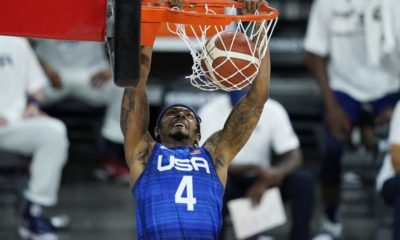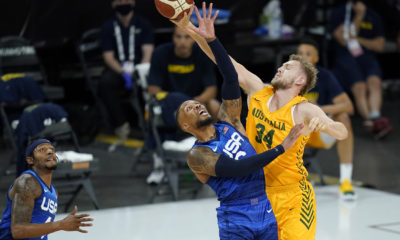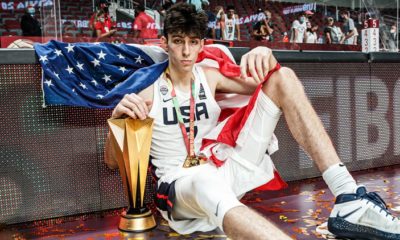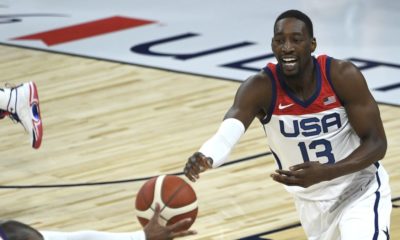NEW YORK – The NBA is considering ways to get involved with high school basketball, with the Players Association potentially changing the “one and done” rule and allowing prospects to enter the league directly out of high school if they are good enough. Players have long been critical of the rule, which requires players to have one-year experience between high school and the NBA, and believe delays them from making money, the way other sports do, and forces them to go to college or play internationally. Some, like Ben Simmons of the Philadelphia 76ers, the No. 1 pick in the 2016 draft, have been openly vocal about the fact his year at LSU was a waste of time. He was there to play basketball and had no interest in participating in the educational part of the college experience.
All Star forward and Olympic star Kevin Durant of the Golden State Warriors, who left Texas after a year, likes the idea but is concerned that some young players who declare may not be ready for the league and are acting on bad advice from agents, who see them as cash cows.
With NBA teams already treating their G-League affiliates like minor league teams, they may have created a path for high school players to enter the pros and get paid while developing their games as teenagers. But G-League salaries, usually in the $40,000 range, pale in comparison to what a rookie can make in the NBA with a slotted contract as a first round draft choice.
The “one and done” has been in existence since 2005 and this year at least eight of the top players in the draft could be freshmen. But with multiple scandals rocking the college landscape, including the widely reported FBI investigation into corruption in the college game that has led to the arrest of four college assistants, shoe company executives and employees of agents and financial advisers, there is a growing call to change the antiquated rules.
This may be the one way to correct a problem that has gotten out of control. But first everyone would have to be on the same page and the Players Union would have to cede the one-and-done rule and agree to a mandate that players entering college must stay for two years before declaring for the draft.












